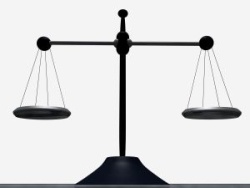Even experts sometimes need good advice
Acting as a medical expert witness can have serious consequences for third persons. Although expert witnesses are doing their best, many problems arise from their medico-legal work. Now the GMC published guidelines for expert witnesses that are welcomed by physicians and organizations.

Dr Stephanie Bown, Director of Policy and Communications of the Medical Protection Society said: "In our experience over recent years, medical expert witnesses have come under scrutiny about the quality of their evidence. The principles of expert witness immunity have also been increasingly undermined."
"Following a small number of high profiles cases, the threat of regulatory sanction and public vilification has had a real impact on the willingness of doctors to undertake medical expert witness work. This has been particularly acute in cases involving child protection issues which are frequently highly contentious and emotionally charged, and where there is a great deal at stake for all the parties involved."
Dr Peter Schütte, head of advisory services at the MDU (Medical Defence Union) said: "Instructing credible experts is central to the work that the MDU does in defending our members, for example in claims and GMC investigations, so we appreciate the qualities necessary to do the job. At the same time we regularly advise doctors on their duties and responsibilities when undertaking the role of medical expert in personal injury or criminal cases and help members with problems arising from the medico-legal work that they carry out, from writing a report to giving evidence in a court or tribunal."
"The expert witness is a key player in most cases, as the court or tribunal will want to hear the opinion of an experienced, impartial medical expert witness to assist in making a decision about the case. In our experience, the vast majority of expert witnesses are perceived as doing a good job, but occasionally there can be allegations - which may or may not have merit."
While there is no evidence that these criticisms were justified in all cases, the most common allegations against members were:
-- Giving misleading advice to a court
-- Failure to properly examine papers or the patient
-- Failure to declare a conflict of interest
-- Putting themselves forward as something they were not, eg not being an expert in the relevant specialty.
Dr Schütte continued: "These cases, while unusual, highlight the relevance of the new GMC guidance as it clearly sets out what is required from expert witnesses and we advise doctors to familiarise themselves with the contents. The guidance makes clear that doctors who act as an expert witness should ensure that the instructions they are given are clear and unambiguous and that they restrict any statements to areas where they have relevant knowledge or direct experience and which fall within the limits of their professional competence. Doctors are expected to include all relevant information and give a balanced opinion. However, if there is not enough information to reach a conclusion on a particular point, the GMC says that you should make this clear. Hardly anything in medicine is 100 per cent, so we advise doctors to stick to their guns if they are inappropriately asked to commit to a certainty."
The guidance covers the role and responsibilities of the expert witness in giving expert opinion and evidence, keeping up to date, information security and disclosure, and conflicts of interest.
It emphasises that medical experts must:
-- Recognise their overriding duty to the court and to the administration of justice
-- Give opinion and evidence within the limits of professional competence
-- Keep up to date in their specialist area of practice
-- Explain where there are a range of views on a particular question
-- Take appropriate action where they change their opinion
Dr Bown commented: "If experts follow the new guidance and ensure they understand and fulfil their duties to the courts, they should be in a strong position to defend themselves against litigation or an investigation by the GMC."
"The importance of this guidance cannot be overstated, and all medical experts should be familiar with it and adhere to it in practice."
For further information, click here
01.08.2008





